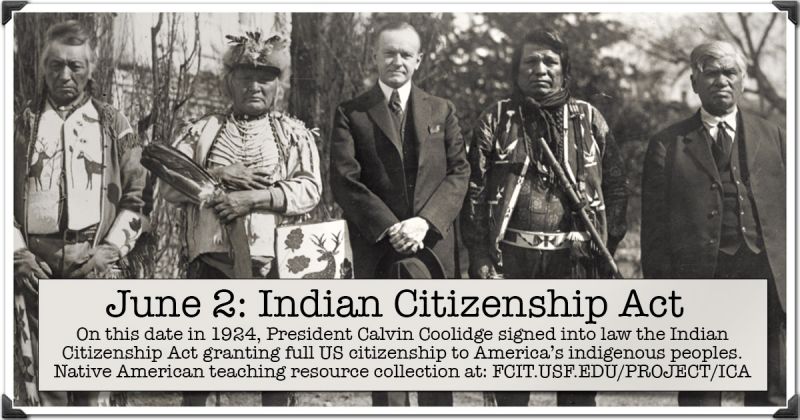100 Years of Native American Citizenship
The Friends of the Iowa Commission on Native American Affairs will host the 100th Anniversary and Commemoration of the Indian Citizenship Act on Sunday, June 2 from 1 – 3 p.m. at the West Capitol Terrace Stage on the State Capitol Complex in Downtown Des Moines (DSM). The event will begin a yearlong commemoration and opportunity to share Native American history and culture as well as mark the date that President Calvin Coolidge signed the Indian Citizenship Act into law on June 2, 1924. By doing so, full birthright citizenship was granted for American Indians on a federal level.
The Road to Citizenship for American Indians
The Constitution’s Article I originally stated that “Indians not taxed” couldn’t be counted in the states’ voting population. As part of the Dred Scott decision in 1957, American Indians could become citizens under congressional and legal supervision. The 14th amendment’s July 1868 ratification overturned Dred Scott and made all persons born or naturalized in the U.S. citizens, but for American Indians, amendment interpretations excluded most of them. In 1870, the Senate Judiciary committee clarified the issue, saying: The 14th amendment to the Constitution has no effect whatsoever upon the status of the Indian tribes within the limits of the United States. “Straggling Indians” were subject to the jurisdiction of the United States. Just 8% of American Indians were eligible to become citizens at the time even though the estimated American Indian population in the 1970 census was larger than the population of five states and 10 territories.
A federal judge declared in May of 1879 that under the 14th Amendment, the Ponca Indians qualified as “people” under the U.S. Constitution during a landmark case Standing Bear v. Crook. When Congress passed the Indian Citizenship Act 45 years later, “the people” were finally recognized as U.S. citizens, and not as a ward of the government, in a country they had already been fighting for in World War I.

About the 100th Anniversary Event in Iowa
The 100th Anniversary event will showcase Native American artists, dancers and more. As you help mark this occasion, remember that “the people” are still here, pursuing their dreams. While it is 100 years of Citizenship, it is thousands of years of presence.
This event is sponsored by The Krause Group, Veridian Credit Union and Des Moines Performing Arts. Learn more at indigenousiowa.com or email info@indigenousiowa.com with questions.
From Pride to Juneteenth to the Latino Heritage Festival, big, inclusive events are par for the course in Greater Des Moines (DSM). But there are smaller events celebrating diversity here, too. Attend one of the Greater Des Moines Partnership’s Multicultural Receptions, an event celebrating veterans or a sensory-friendly event in the region. Learn more here.